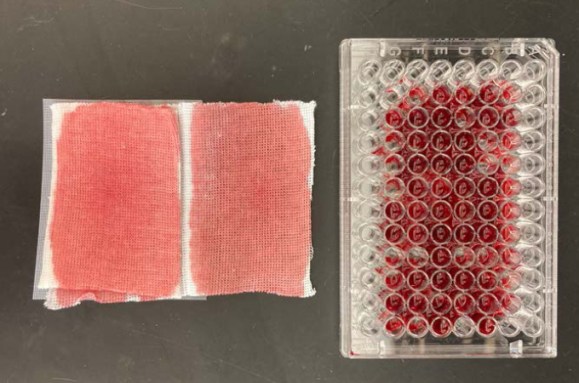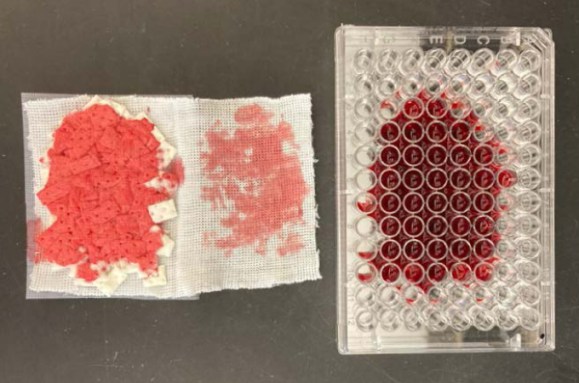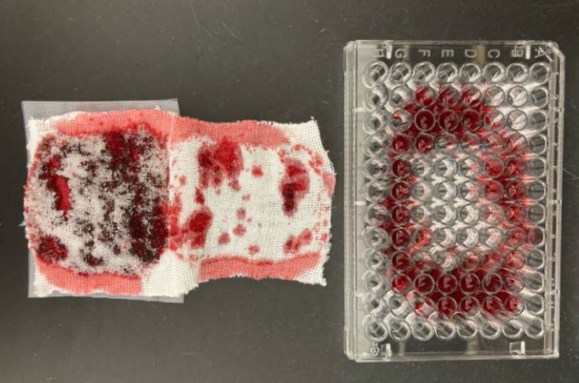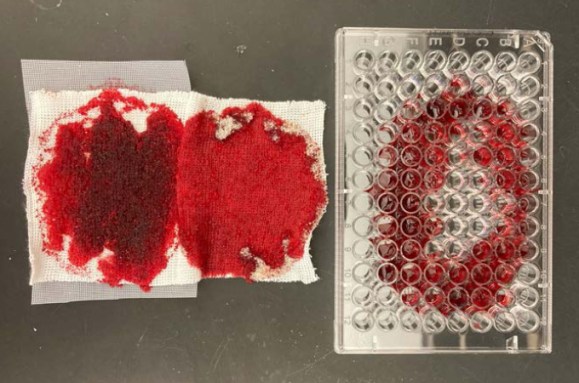Extreme Climate Survey
Scientific news is collecting readers’ questions about how to navigate our planet’s changing climate.
What do you want to know about extreme heat and how it can lead to extreme weather events?
Most menstrual pads use cellulose-based materials to absorb menstrual blood. Although they are effective, many people who have periods still struggle with leakage and mess.
To solve this problem, the team turned to alginate, a natural substance derived from algae and seaweed. After the researchers screened a large array of potential polysaccharides—long chains of carbohydrate molecules—that might have blood-absorbing properties, alginate excelled at absorbing and gelling blood. It is also already approved by the Food and Drug Administration for use in pharmaceuticals, foods, and medical supplies.
To further improve the absorption of alginate, the researchers added glycerin. They then tested the absorption of these alginate-glycerol powders against commercial absorbents by placing each between sheets of gauze. The team dripped modified pig blood through a model vagina to mimic menstruation before performing a squeeze test on the blood-soaked materials. Although both were good at absorbing blood, when the simulated period pads with commercial absorbents were compressed, it was “like squeezing a sponge,” says Bryan Hsu, a microbiologist at Virginia Tech. With the alginate material, which gelled the blood, the pads leaked less under pressure.
The team also tested their new material on menstrual cups. They packed the alginate-glycerol powder into a long, narrow cotton sleeve, which was then rolled inside the cup. Once the blood entered the menstrual cup and encountered the alginate, it became a gel. The blood can then be removed along with the cotton swab—and a new one reinserted—with minimal liquid mess. In solidifying menstrual blood into a gel, Hsu says, the goal is to make removal and cleaning of the menstrual cup easier and neater.
A limitation of the study, notes ob-gyn Abigail Liberty, is that the blood was defibrinated from pig blood, which does not contain fibrin, a protein involved in clotting. Although she applauds the team for using blood instead of another model fluid, menstrual blood is “different from the blood that’s circulating around the body,” says Liberty, of Oregon Health & Science University in Portland. (SN: 16.4.24). “It is secreted in a different way. It’s grown, it’s released in a different way.”
Because of the lack of research on menstrual care and period products, Bataglioli and colleagues did not have a base of experimental techniques to draw upon and adapt. Instead, they designed many of their methods from scratch. “This is a message to the scientific community – there is nothing out there,” says Zeinab Hosseinidoust, a biomedical engineer at McMaster University in Hamilton, Canada. “Even more important than the actual research that was done is the message this work sends.”
#algaebased #menstrual #pad #stop #bleeding
Image Source : www.sciencenews.org



